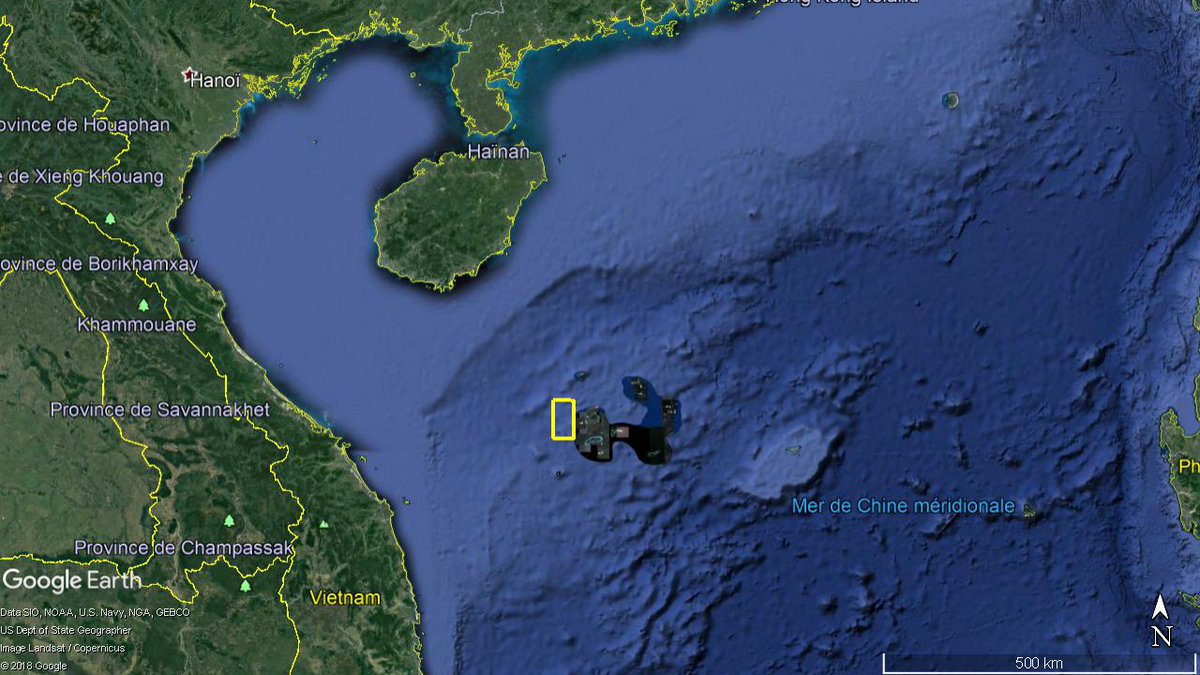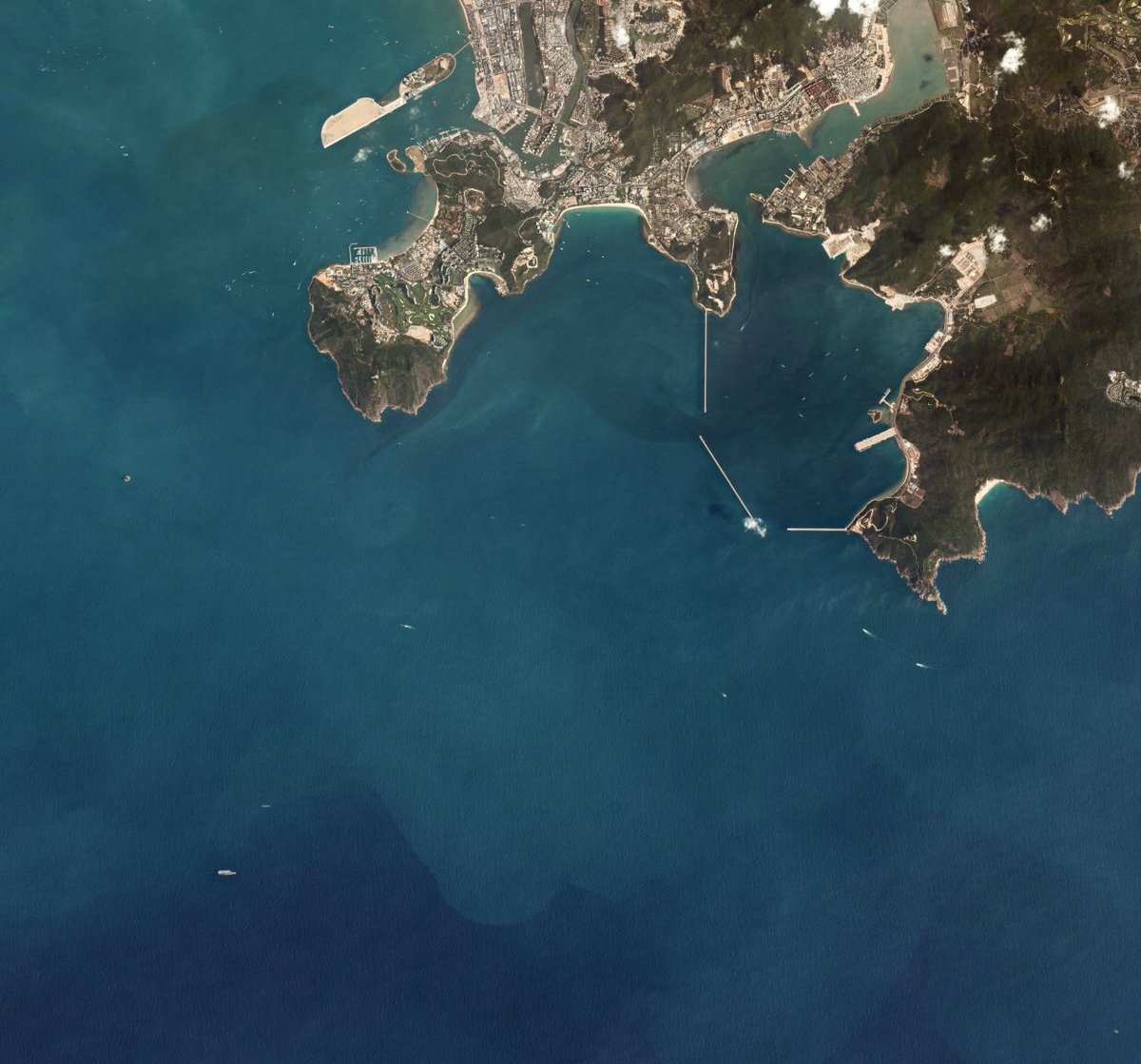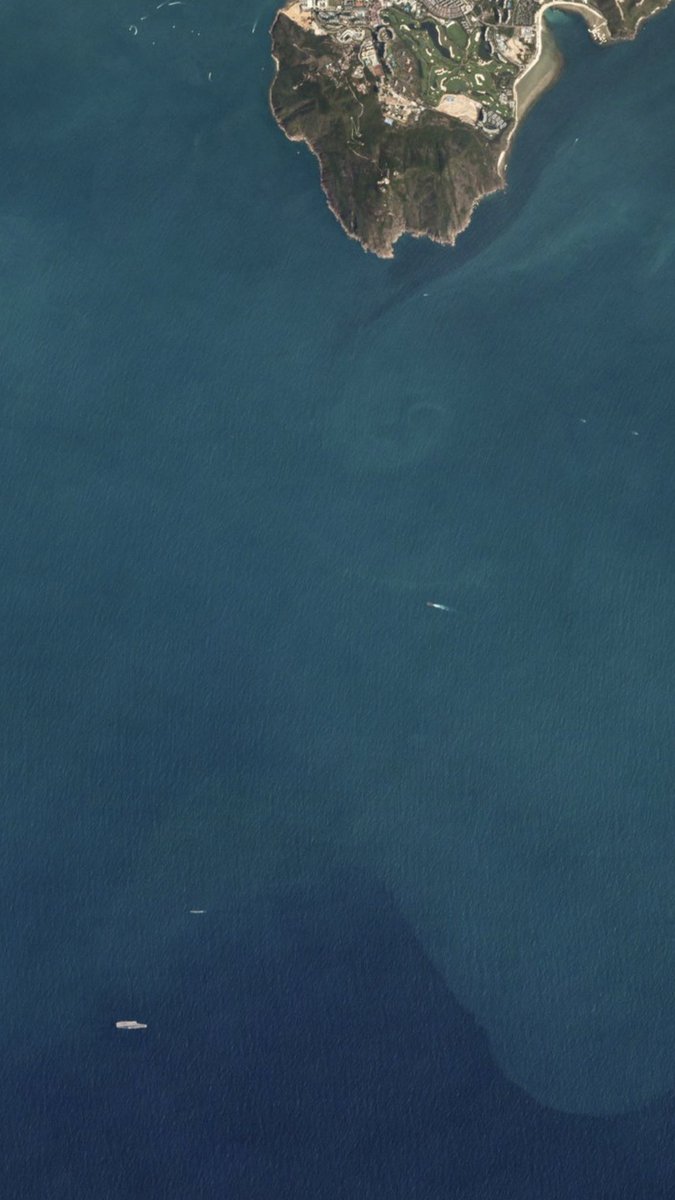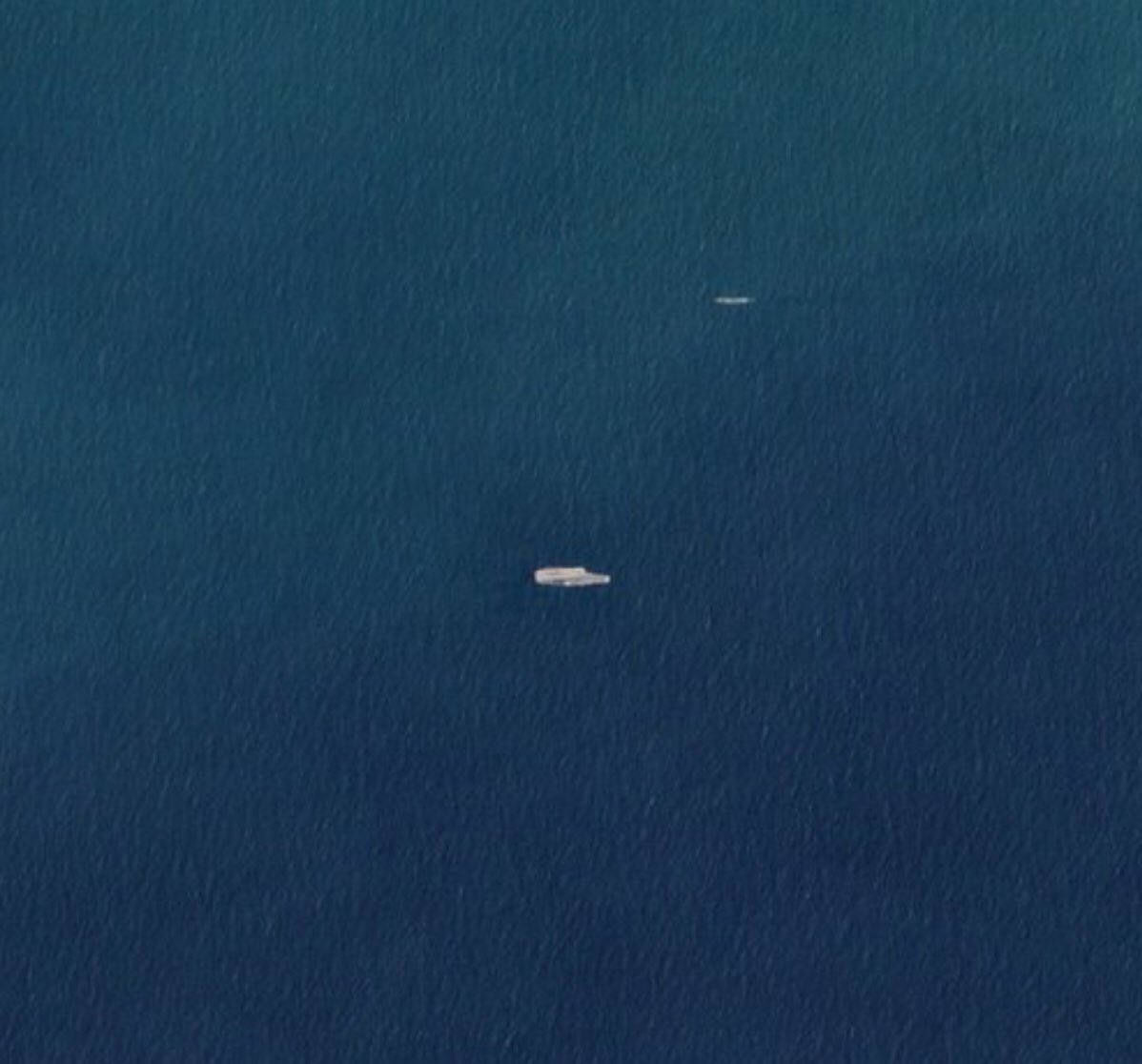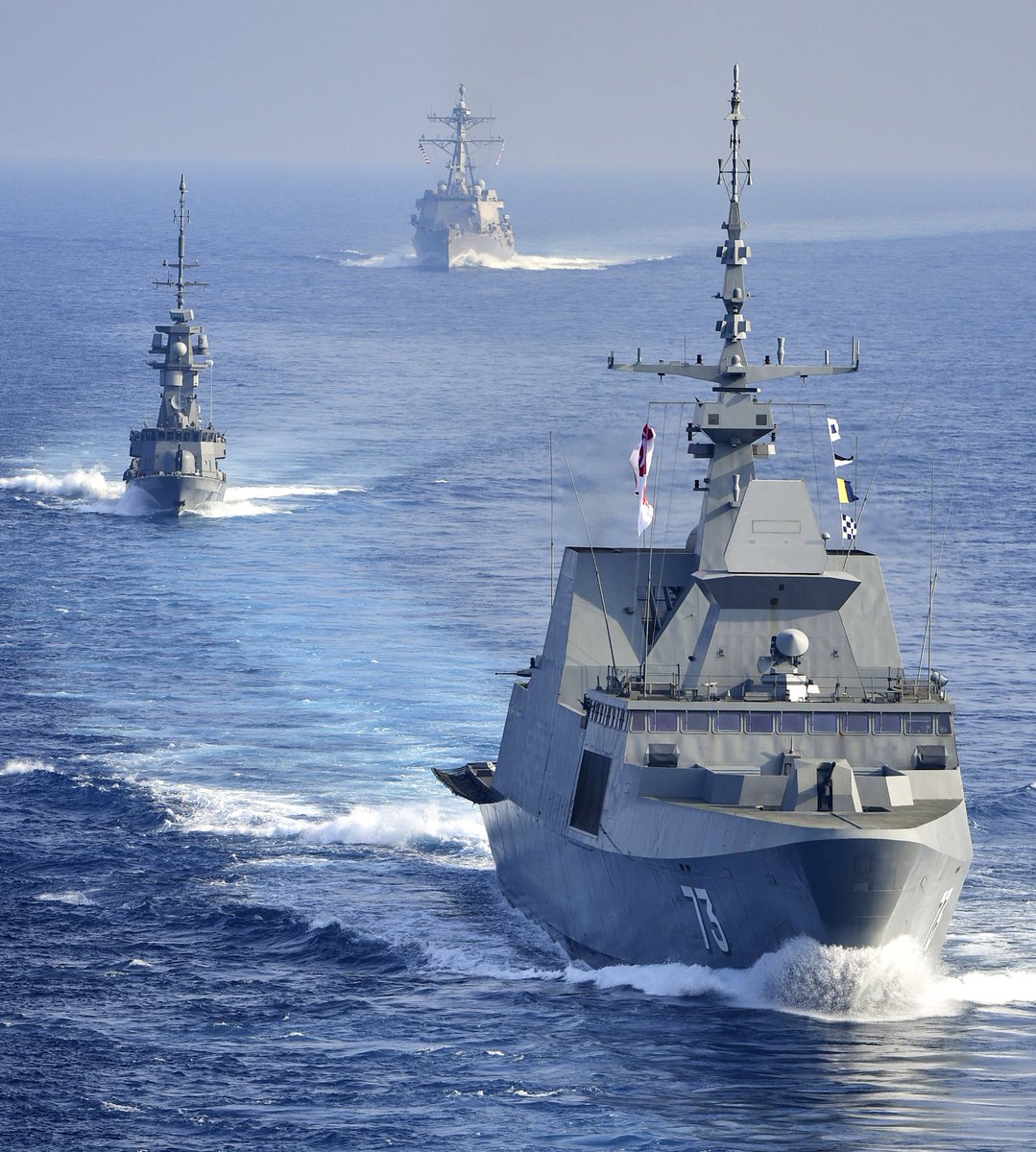The U.S. military has warily watched the steady growth of
and its expansion into the
, where its anti-access/area denial strategy seeks to shoo America and other outsiders out of the country’s watery backyard.
This week, the country’s naval forces produced its latest coming out party of sorts, as scores of ships steamed with an aircraft carrier along a vital trade waterway, according to satellite images first obtained and reported on by
.
The images, provided by Planet Labs, an earth imaging company, show Chinese ships moving in a straight line off the island of Hainan in the South China Sea.
Reuters
this week that the movements were part of what the Chinese navy said were combat drills that comprised part of annual exercises.
The Chinese Liaoning carrier group just steamed through the Taiwan Strait last week, the Taiwanese defense ministry said, according to Reuters.
Taken Monday, the images appear to show dozens of ships and submarines flanking the carrier in a line formation.
“It’s an incredible picture,” Jeffrey Lewis, a security expert at the Middlebury Institute for Strategic Studies, was quoted as saying by
. “That’s the big news to me. Confirmation that, yes, the carrier participated in this exercise.”
The size and scope of the deployment was unusual, security expert Collin Koh told Reuters.
“It does seem they are keen to show that elements of the South Sea Fleet are able to routinely join up with the carrier strike group from Dalian in the north,” said Koh, of the S. Rajaratnam School of International Studies.
Koh said the Chinese flotilla appears to include a large oiler for refueling as well as smaller corvettes, in addition to the standard destroyers, frigates and boats that would travel with a carrier, according to Reuters.
While the movement showcases the Chinese navy’s ability to deploy, it remains to be seen where the force stands in terms of actual combat readiness, Koh told Reuters.
Monday’s display of maritime might came after news Friday that the U.S. Navy destroyer Mustin conducted a freedom of navigation operation, or FONOP, where it steamed within 12 nautical miles of a South China Sea artificial island built by the Chinese.
The FONOP,
by Reuters, involved the Mustin traveling near Mischief Reef in the Spratly Islands.
China has sought to extend its reach into the South China Sea by constructing artificial islands and military bases.
Meanwhile, the United States has called out the development’s potential infringement on the free flow of trade.
U.S. military officials said the activities were allowed under international law and that forces regularly operate in the region.

